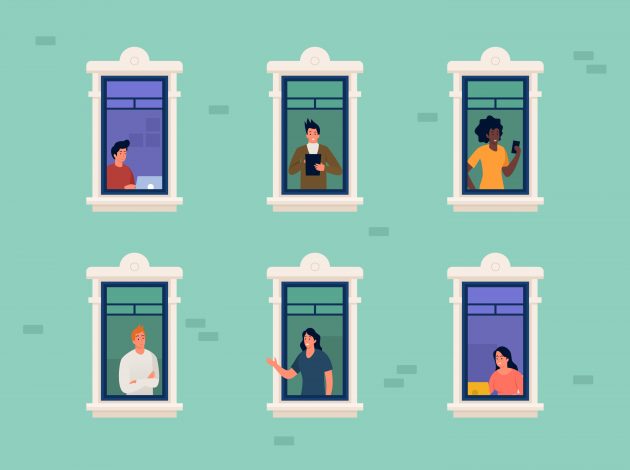Over the past month, the ONS has been producing information about how society and the economy are being affected during the coronavirus pandemic. Here Iain Bell shares some of the latest insights gained from thousands of individuals and businesses across the country who are sharing their experiences with us.
A fortnight ago, I introduced the first results from new surveys that ONS has devised to provide timely information to Government during the COVID-19 pandemic. These help us to understand the impact on people and businesses of the measures taken to save lives and protect the NHS.
We’re now finding out more about the experiences of different sections of society and sectors of the economy. Today, we’ve published the latest insights from the Opinion and Lifestyle Survey on the impacts on disabled people.
This shows the differing impact of the lockdown on disabled people. Almost half of disabled adults were very worried about the effects of the pandemic on their lives – significantly higher than those who are not disabled. For two-thirds of disabled adults, the pandemic was also impacting on their wellbeing.
They also reported that they had spent too much time alone. Over a third of disabled people told us they had spent too much time alone compared to a fifth of non-disabled people.
But everyone’s experience is different and disability covers a wide range of conditions. There are other stories, too, among the numbers: the sense of community spirit is growing from week to week, with more than three-quarters of adults (77.9%) saying they thought people are doing more to help others since the COVID-19 pandemic began. We see that there is no difference between disabled and non-disabled people reporting on actively supporting their communities, checking in on neighbours who might need help or doing shopping or other tasks for a neighbour. Both groups are equally likely to say they feel that they have support in their community if they needed help during the pandemic.
This week, we’ve also been showing other aspects of the impact of the lockdown on our lives. First of all, we explored homeschooling yesterday in our report on the social impacts of the coronavirus. Over 70% of adults with a dependent child said they were homeschooling (some children being too young and others still attending school). Over half of the adults said they were confident in their ability to homeschool, but a quarter said they were not.
For many adults this was impacting on well-being and work. Over half of adults felt homeschooling was impacting negatively on their children’s well-being, and nearly 30% said the same was true for their own well-being. Over 40% of adults said homeschooling was having a negative effect on their job, although we did not know if they were working from home or going to work.
The impacts on businesses and jobs are also becoming clearer. The latest figures from our Business Impact of Coronavirus (COVID-19) Survey (BICS) show that just over a quarter of the workforce (27%) have been furloughed. We need to bear in mind that those responding were still trading at the time, or had temporarily paused trading. For those in the businesses that had paused trading, 78% of staff were furloughed, compared with 14% in those still trading. Industries with the highest percentage of furloughed staff were ‘accommodation and food service activities’ (80%), followed by ‘art, entertainment and recreation’ (68%).
What this shows is that we are adapting and recognising the importance of the ‘stay home’ message. More than 8 in 10 of us (85.4%) say we have not gone out in the past seven days, or only for the permitted reasons (essential shopping, medical reasons, one form of daily exercise and key workers travelling to work).
This week, we added a new dimension to the work we are doing to help the response to COVID-19. Yesterday, the COVID-19 Prevalence Study was announced which will be run by ONS in partnership with Oxford University and IQVIA. Initially, this involves inviting 20,000 households to take part in the Study to measure the prevalence of COVID-19 in the community in England.
The willingness of people to take part in our surveys, even at this most difficult of times, means we can shed light on how people and businesses are faring. That willingness to give their time has never been more appreciated, nor more important. My heartfelt thanks to them, and my plea to anyone being asked to take part in the future is ‘please do’. Every invitation letter gives a phone number to call – please do so to take part. Your response will help inform the crucial decisions that lie ahead.
Iain Bell is Deputy National Statistician at the ONS
